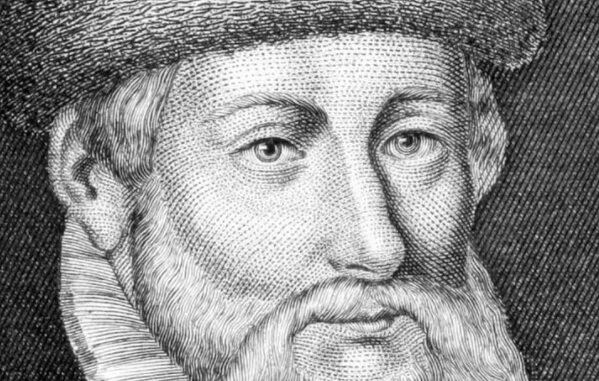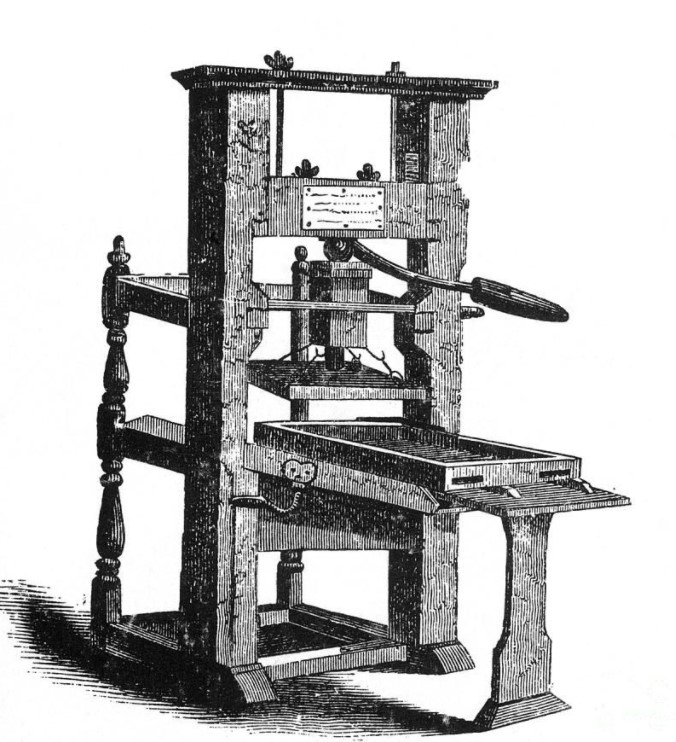
Printing Press pioneer Johannes Gutenberg, born Johannes Genfleisch zur Laden zum Gutenberg is regarded as one of the most influential people in human history. The German goldsmith, inventor, printer, and publisher Gutenberg is credited with starting the Printing Revolution in Europe after he introduced printing to Europe with his mechanical movable-type printing press. He is not the first to use movable type in the world but was the first European to do so. His invention played a key role in the development of the Renaissance, Reformation, Age of Enlightenment, and Scientific Revolution. His invention is also credited with laying a material basis for the modern knowledge-based economy and the spread of learning to the masses. There are records of several books printed from his workshop.
The pioneer of the printing press died on 3 February 1468 at the age of about 68 in his hometown.

Source: @pinterest
What is Johannes Gutenberg Famous For?
- The printing press pioneer who introduced movable mechanical printing press printing to Europe.
Where is Johannes Gutenberg From?
Johannes Gutenberg was born somewhere around 1400. His exact date of birth is not known but the city of Mainz declared 24 June 1400 as Gutenberg’s official birth date. His birth name is Johannes Gensfleisch zur Laden zum Gutenberg. His birth place is in the German city of Mainz, Electorate of Mainz, Holy Roman Empire. He held German nationality. He was born to father, Friele Gensfleisch zur Laden and mother Else Wyrich. He was the youngest son.
The Gensfleischs was one of the patrician (the wealthy and political elite) families of the town. Due to the uprising in Mainz against the patricians in 1411, the Gutenbergs are believed to have moved to Eltville am Rhein (Alta Villa). They are believed to have migrated due to political reasons.
In the record of the enrolment of a student at the University of Erfurt, there is a student named Johannes de Altavilla. He is assumed to have studied there.
Johannes Gutenberg Story
- Gutenberg grew up learning goldsmith trading as his father was a goldsmith for the bishop at Mainz. There is no concrete evidence about where he learned polishing gems.
- A 1434 letter indicates that he was living in Strasbourg and reported as a goldsmith member enrolled in the Strasbourg militias.
- Around 1439, he was involved in financial misadventure making polished metal mirrors for sale to pilgrims. Those mirrors were believed to capture holy light from religious relics.
- He is said to have perfected and unveiled the secret of printing based on his research, mysteriously entitled Aventur und Kunst (enterprise and art).
- It is believed that he conducted his movable printing press trials around the time.
- He returned to Mainz in 1448 and took out a loan from his brother-in-law Arnold Gelthus to start printing press.
- His press was in operation by 1450. A German poem is reported to be the first item to be printed there.
- He took loans and started the Bible project as well as other printing works. His 42-line Bible, called Gutenberg Bible was completed in 1455.
- He lost his court battle against moneylender Johann Fust and Gutenberg lost his control over the Bible printing workshop.
- The Fust-Schoffer shop was the first in Europe to bring out a book with the printer’s name and date, the Mainz Psalter of August 1457. It made no mention of Gutenberg.
- He went bankrupt and later started a small printing shop.
- It is believed that the large Catholicon dictionary, 300 copies of 754 pages were printed in his workshop.
- Archbishop Adolph von Nassau sacked Mainz during the devastating Mainz Diocesan Feud in 1462. Archbishop von Nassau recognized Gutenberg’s achievements in 1465.
- Gutenberg was given the title Hofmann (gentleman of the court) that included a stipend, an annual court outfit, as well as 2,180 liters of grain and 2,000 liters of wine tax-free.
- Gutenberg died around the age of 68 in 1468. He was buried likely as a tertiary in the Franciscan church at Mainz. The church and the cemetery were later destroyed.
Johannes Gutenberg Wife and Children
Printing Press pioneer Johannes Gutenberg is believed to have never married. He is also believed to have never fathered any children. However, the court documents from 1436 and 1437 indicate that he broke a promise to marry a Strasbourg woman named Ennelin. No other information (official or unofficial) are known bout Gutenberg’s personal life.
Leave a Reply